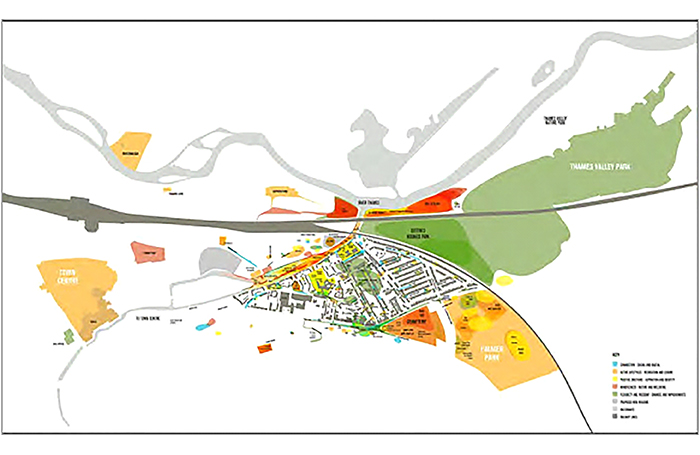Mapping social values
Eli Hatleskog, University of Bristol and University of the Arts London; Flora Samuel, University of Reading
Awards RIBA President's Awards for Research 2020
Category Cities and Community

Social value is high on policy agendas in the UK but there is little agreement on the definition of social value in the context of the built environment or on how the gathering of social value data might be spatialised. This document gives an account of a research project which developed a pragmatic methodology for collecting social value data with local communities. The research explored how practitioners working in the urban environment can, through the co-design of maps with communities, capture and share attributes of a place which typically remain undervalued or hidden. Through a novel asset-based spatial approach to social value the project demonstrated the agency of mapping methods which can generate co-produced urban knowledge, develop capacity and make arguments for value-responsive improvements and development. Mapmaking supported negotiations across different points of view and contested interests and the research project created and tested methods for inclusive architectural research which included not only local voices and interpretations, but also evolved in relation to some of the real challenges and barriers faced by the local authority. In response to rich information collected through workshops, a practice-based approach was taken, whereby 14 handmade community maps were drawn and overlaid digitally. The resultant multilayered vector maps gathered and collated different interpretations of value and converted them into an accessible visual format. This supported dissemination, feedback and visual analysis with both participants and the local authority. In turn, the research sought to position mapping as a strategic tool for revealing common values and communicating potential in the built environment, with the aim of developing value-based knowledge particularly useful to early design, and decision making, processes around strategic land management.
Read more on mapping social values in the RIBA Journal: 'How to make the mapping of social values work'.
This work was supported by an Institutional Links grant, ID 332241573, under the Newton Fund, Philippines. The grant was funded by the UK Department for Business, Energy and Industrial Strategy and The Philippines Commission of Higher Education (CHED), and delivered by the British Council. For further information, please visit www.newtonfund.ac.uk.






